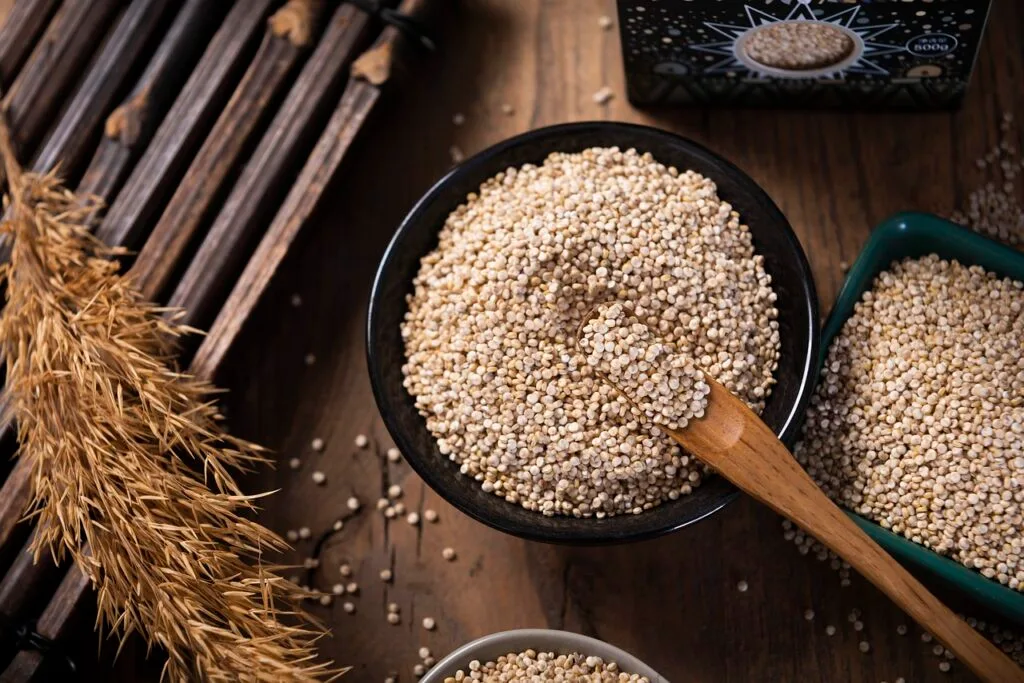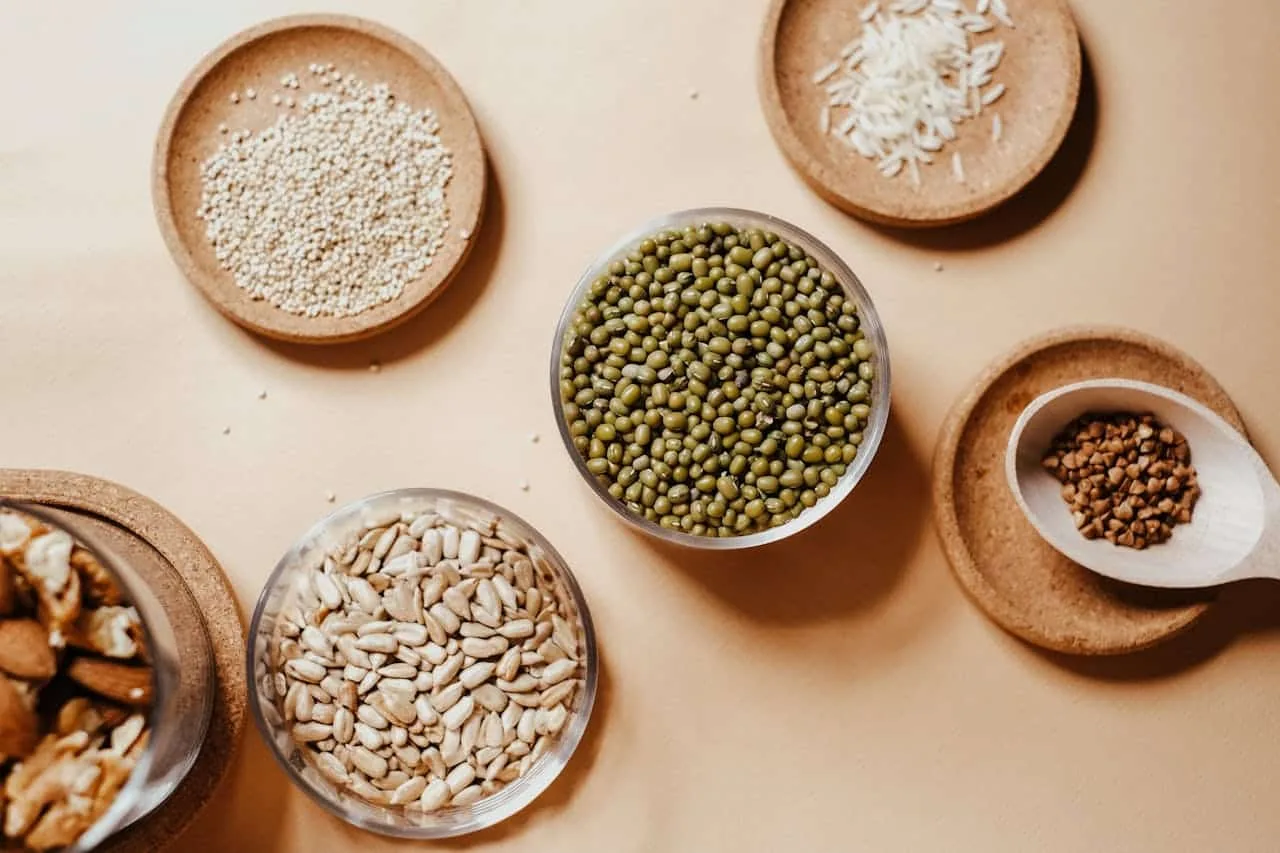Introduction
Quinoa, often hailed as a supergrain, has gained immense popularity in recent years due to its impressive nutritional profile and versatility. This ancient grain is packed with protein, fiber, vitamins, and minerals. In this comprehensive article, we will delve into the world of quinoa, exploring its nutritional benefits, culinary uses, and how to incorporate it into your diet.

What is Quinoa?
Quinoa, despite its appearance, is not a grain but a seed related to spinach and beets. It comes in three main varieties: white, red, and black. Each variety offers a slightly different flavor and texture, but all share the same nutritional powerhouse qualities.
Nutritional Benefits of Quinoa
Complete Protein: Quinoa is a complete protein, meaning it contains all nine essential amino acids, making it a valuable source for vegetarians and vegans.
Fiber-Rich: Quinoa is an excellent source of both soluble and insoluble fiber, promoting digestive health and aiding in weight management.
Nutrient-Dense: This supergrain is packed with essential vitamins and minerals, including magnesium, iron, zinc, and B vitamins.
Gluten-Free: Quinoa is naturally gluten-free, making it a suitable option for individuals with celiac disease or gluten sensitivity.
Low Glycemic Index: Quinoa has a low glycemic index, meaning it releases glucose slowly into the bloodstream, helping to regulate blood sugar levels.
Nutritional Value chart for Quinoa
| Nutrient | Amount |
| Calories | 222 |
| Protein | 8.14g |
| Total Fat | 3.55g |
| Saturated Fat | 0.7g |
| Polyunsaturated Fat | 1.2g |
| Monounsaturated Fat | 1.4g |
| Carbohydrates | 39.4g |
| Fiber | 5.18g |
| Sugar | 0.9g |
| Cholesterol | 0mg |
| Sodium | 31mg |
| Potassium | 187mg |
| Calcium | 58mg |
| Iron | 2.8mg |
| Magnesium | 80mg |
| Phosphorus | 281mg |
| Manganese | 1.1mg |
| Zinc | 2.0mg |
| Vitamin B1 (Thiamin) | 0.14mg |
| Vitamin B2 (Riboflavin) | 0.19mg |
| Vitamin B3 (Niacin) | 0.6mg |
| Vitamin B6 | 0.16mg |
| Folate (Folic Acid) | 81mcg |
Health Benefits
- Heart Health: The fiber and antioxidants in quinoa contribute to heart health by lowering cholesterol and reducing inflammation.
- Digestive Health: The fiber content promotes regular bowel movements and gut health.
- Weight Management: High in fiber and protein, quinoa can help you feel fuller for longer, aiding in weight control.
- Blood Sugar Control: Its low glycemic index helps prevent blood sugar spikes.
- Muscle Building: As a complete protein, quinoa supports muscle growth and repair.
- Antioxidant Protection: The antioxidants in quinoa help protect cells from damage caused by free radicals
How does quinoa benefit individuals with diabetes?
Quinoa is an excellent choice for people with diabetes due to its unique nutritional profile. Here’s how it can help:
- Low Glycemic Index (GI): Quinoa has a lower GI compared to many other grains, meaning it doesn’t cause rapid spikes in blood sugar levels.
- High Fiber Content: The fiber in quinoa helps slow down the absorption of sugar into the bloodstream, preventing blood sugar spikes.
- Protein Powerhouse: Quinoa is a complete protein, providing essential amino acids. Protein helps regulate blood sugar levels and keeps you feeling full.
- Magnesium Rich: Magnesium plays a vital role in insulin sensitivity, helping your body use insulin effectively.
Remember: While quinoa is a beneficial food for diabetics, it should be consumed as part of a balanced diet. Always consult with your healthcare provider or a registered dietitian for personalized dietary advice.
How Does Quinoa Support Heart Health?
Quinoa offers several benefits that contribute to heart health:
- Fiber: Quinoa is rich in fiber, which helps lower LDL (bad) cholesterol levels, reducing the risk of heart disease.
- Antioxidants: This supergrain contains antioxidants that combat harmful free radicals, protecting your heart from oxidative damage.
- Inflammation Reduction: Some of the compounds in quinoa have anti-inflammatory properties, which can help reduce inflammation linked to heart disease.
- Blood Pressure Regulation: The potassium content in quinoa can help regulate blood pressure, a crucial factor in heart health.
- Weight Management: Quinoa’s protein and fiber content can help you feel fuller, aiding in weight management. Maintaining a healthy weight is essential for heart health
By incorporating quinoa into your diet, you can enjoy these heart-healthy benefits and contribute to overall cardiovascular well-being.
SUMMARY
Quinoa is a nutritional powerhouse that deserves a prominent place in your diet. Its versatility, health benefits, and delicious taste make it a fantastic addition to any meal plan. By incorporating quinoa into your daily routine, you can enjoy improved overall health and well-being.
Follow Us on Instagram






